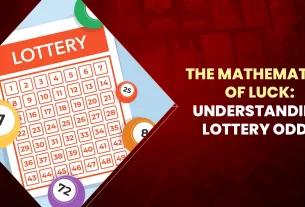In the world of strategic card play, few games demand long-term, disciplined evaluation like poker. Unlike games that rely entirely on chance, poker rewards players who track their decisions, identify patterns, and learn from outcomes across many sessions.
While luck influences short-term results, consistent decision quality determines long-term performance. This is why both live players and online enthusiasts are increasingly adopting systematic tracking methods to evaluate how well they play—beyond simply counting wins or losses.
Decision tracking has become a foundational skill among serious players, especially as digital tools and live casino environments evolve. Whether someone plays recreationally at a local card table or occasionally uses real money earning games on verified platforms, the underlying principle is the same: better information leads to better decisions.
Why Decision Tracking Matters More Than Counting Wins
A common misconception is that good poker players win more hands. In reality, professional and semi-professional players win fewer hands than beginners—but they win the right ones. Because the game blends probability, psychology, and incomplete information, a single hand tells you nothing about your long-term skill.
Decision tracking shifts the focus from “Did I win?” to “Did I make the optimal choice?”
Players who track their choices over time gain several advantages:
- identifying frequent leaks (e.g., calling too wide, folding too early)
- evaluating bluff frequency versus profitability
- recognizing tilt-based decisions
- analyzing bet sizing patterns
- reviewing how position impacts outcomes
This long-view approach turns poker into an ongoing analytical project rather than a series of isolated outcomes.
1. The Core Data Live Poker Players Track
Live players don’t have the instant statistical dashboards available to online players, so they manually track key decision metrics such as:
- starting hand quality
- pre-flop aggression vs. passivity
- post-flop continuation bet rates
- fold frequency when facing pressure
- perceived opponent tendencies
- big wins vs. small losses (or vice versa)
- emotional triggers that shift strategy
This practice builds a personal database of insights. Over time, players can compare sessions and notice whether their decision-making is trending upward, downward, or stagnating.
2. Street-by-Street Review: A Classic Method for Live Games
One of the most effective long-term evaluation tools is the street-by-street review. After each significant hand, players reconstruct the:
- pot size
- board texture
- opponent actions
- their own betting lines
The goal isn’t to obsess over a single outcome but to determine whether each decision maximized expected value. Because poker is a game of evolving information, revisiting each street clarifies whether choices were made logically or reflexively.
This review method has become even more common thanks to digital note-taking apps that allow discreet hand writing without disrupting the game flow.
3. Move Quality Index: Creating a Personal Rating System
Some players create a “Move Quality Index” (MQI), where every significant decision is scored using criteria such as:
- logic
- math accuracy
- opponent profile
- tilt influence
- long-term expected value
The goal is not perfect scoring but consistent evaluation. When used over months or years, an MQI reveals gradual improvement, strategic weaknesses, and emotional decision patterns that would otherwise go unnoticed.
This method is especially useful for players who switch between in-person games and regulated online casino environments, where decision logs can support cross-format growth.
4. Tracking Emotional Tilt and Mental Energy
While strategy and math dominate poker discussions, emotional regulation plays just as large a role. Tilt—any form of emotionally compromised decision making—remains the number-one cause of avoidable losses.
Players track:
- moments that triggered frustration
- how long tilt lasted
- decisions taken during tilt
- recovery strategies that worked (or didn’t)
Over time, players learn their personal tilt patterns and build safeguards. These logs support responsible play and help ensure that both live play and occasional use of platforms like Khelraja online casino are approached with balance and intention.
5. Real-Time Digital Tools for Modern Poker Tracking
Although live games require manual effort, digital tools now support easier analysis between sessions:
- session-tracking apps
- EV calculators
- range analyzers
- solver tools for reviewing choices
- cloud-based hand journals
These tools don’t replace real-world judgment but refine it. Even those who occasionally try online gambling games use these tools to improve decision consistency across both digital and offline environments.
The key is responsible use—software should guide learning, not dictate play.
6. Longitudinal Tracking: How Patterns Reveal True Skill
Long-term trend analysis is where decision tracking becomes truly powerful. Over 6–12 months, players begin to see:
- improvement in starting hand discipline
- more coherent betting patterns
- better understanding of table dynamics
- fewer emotionally driven decisions
- stronger recovery after losses
- increasing consistency across sessions
The longer the timeline, the more accurate the picture becomes. This is especially important in poker, where short-term variance can disguise real progress.
Players who treat their game like a research project end up making smarter, calmer, more profitable decisions—regardless of where they play.
7. Why Decision Tracking Supports Responsible Gaming
Analyzing decision quality—not just financial outcomes—keeps players grounded. It reduces impulsive behavior, emotional reactivity, and unrealistic expectations. This mindset is crucial for anyone engaging with online casino platforms or real money earning games in a recreational, moderate way.
Tracking decisions encourages:
- reflective play
- boundary setting
- self-awareness
- recognition of unhealthy patterns
- intentional breaks when needed
In this way, decision tracking becomes more than a performance tool—it becomes a wellness strategy.
Conclusion: Poker Is a Game of Data, Decisions, and Discipline
The most successful poker players aren’t the ones who celebrate single big wins, but the ones who evaluate every decision with long-term clarity. By logging moves, analyzing patterns, and understanding emotional triggers, players transform the game into a disciplined, strategic pursuit.
Live or online, the principle stays the same: You can’t improve what you don’t track.
Decision tracking reveals strengths, corrects blind spots, and encourages responsible, informed play. For anyone committed to growing in the game—recreationally or competitively—it’s one of the most valuable habits they can adopt.






